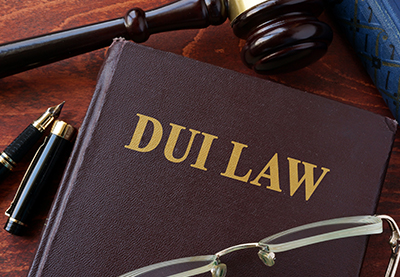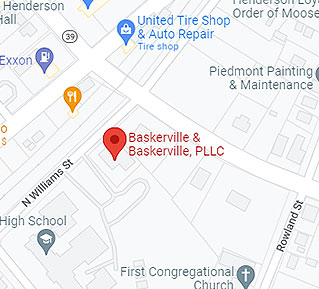 How Exactly Is DWI Defined By North Carolina Law?
How Exactly Is DWI Defined By North Carolina Law?
DWI stands for Driving While Impaired. DWI is a misdemeanor in North Carolina. In order to be convicted of a DWI, the state of North Carolina must prove beyond a reasonable doubt that my client was operating a motor vehicle on a public street or vehicular area with an alcohol concentration of 0.08 or higher. Or, if the client refuses to blow or submit to a blood sample, they can be convicted if the officer can observed they are impaired.
Therefore, there are two different ways that DWI is defined in North Carolina. Either have an alcohol concentration of 0.08 or above or being appreciably impaired, based on the officer applying his training and experience.
Am I Required To Provide A Breath Or Blood Sample During The DWI Investigation And Arrest In North Carolina? What Happens If I Refuse?
You may or may not be required to provide a breath or blood sample during the DWI investigation. It’s contextually dependent and most relies on which point in the process you refused. You can refuse to provide a breath or blood sample prior to your arrest for driving while impaired and there will be no impact on your driver’s license. However, if an officer places you under arrest for driving while impaired and then they ask you to submit to a Breathalyzer or provide a blood sample and you refuse, your license is suspended automatically for one year.
More Information:
- Driver’s License Suspensions After DUI Arrests Or Convictions In North Carolina
- Applying For An Expungement In North Carolina: A Step-by-Step Guide
- Expungement In North Carolina: What It Means & How It Works
- What Would You Say To Someone Who’s Thinking “I’m Just Going To Go Plead Guilty, I Did It, I Don’t Need To Hire A Criminal Defense Attorney, I Don’t Need A DWI Attorney”?
What Do I Need To Know About My Driver’s License After I’ve Been Arrested And Charged With DWI In North Carolina?
In North Carolina, if you are charged with driving while impaired, your license is suspended immediately for 30 days. If the officers are correctly following procedures, they will seize your license on the spot. After 30 days, you can go to the clerk of court in the county where you were charged, pay a $100 civil revocation fee and the clerks will give your driver’s license back.
In summary, if charged with DWI your license is suspended immediately for 30 days and after those 30 days, you can pay a $100 civil revocation fee and retrieve your license from the county clerk of court.
Is There Any Sort Of Administrative Driver’s License Hearing Or Anything Like That In North Carolina?
In North Carolina there is a process that functions as an administrative defense hearing called a refusal hearing. A refusal hearing is for people who are charged with DWI and allows them to petition the DMV for a opportunity to determine whether their refusal was “willful.” Individuals charged with DWI should remember that refusal to provide a blood or breath sample will result in a license suspension for one year. Let’s imagine you unintentionally refuse to blow or you don’t provide a blood sample because you have relevant health issues. Perhaps you are asthmatic or have a pulmonary disease such as COPD that would prevent you from physically supplying a sufficient breath sample. If this is the case, you can appeal the refusal within 10 days of your arrest.
You can appeal a one-year suspension within 10 days of the arrest with an administrative hearing at the DMV as well. You will state something along the lines of, “My refusal was not intentional, it was based solely on my physical condition”. Oftentimes we ask the client to give us a doctor’s note as evidence of a diagnosis. A diagnosis can establish their medical condition and its impact on their breathing and ability to provide breath samples.
What Are Potential Penalties For A DWI Conviction In North Carolina?
DWIs are misdemeanors. However, unlike other misdemeanors in the state of North Carolina, the punishment for DWIs is completely different. With every other misdemeanor, we have something called Structured Sentencing. With DWIs, there is an entirely different sentencing arrangement. In a DWI case the court considers mitigating factors, aggravating factors and grossly aggravating factors to determine punishment. Mitigating factors are details that will reduce your punishment. For example, the legal limit for blood alcohol content is 0.08. If you blew exactly the legal limit of 0.08, that’s considered a mitigating factor. Whereas if you go on the opposite end of that scale, blowing a 0.16 will be considered an aggravating factor because it worsens your punishment.
Grossly aggravating factors are very serious because they can land you in jail. An example of a grossly aggravating factor may be that you’ve had a prior DWI within the last 7 years. Or, if your license was still suspended for a previous DWI when you were charged. Furthermore, one of the most severe grossly aggravating factors may be that you had a child under the age of 16 in the car when you were charged with DWI. Details such as these are examples that will land you in jail.
The judge renders your punishment depending on how many grossly aggravating and aggravating factors you have, as balanced out by your mitigating factors. The maximum that a judge can give is 36 months in jail. However, of you don’t have too many grossly aggravating factors the judge can give you 12 months in jail. Let’s say you don’t have grossly aggravating factors or any aggravating factors, but some mitigating factors, the blow is very low and you only get probation with no jail time.
For more information on DWI Law In North Carolina, an initial consultation is your next best step. Get the information and legal answers you are seeking by calling (252) 572-4495 today.

(252) 572-4495
